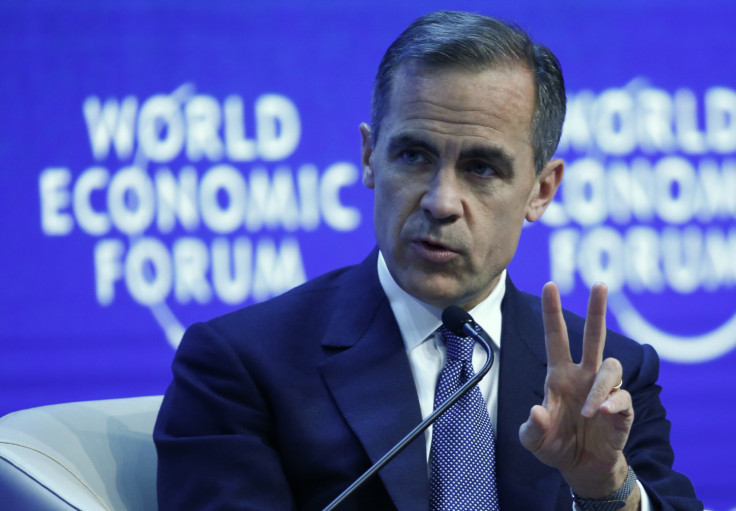Increased openness, not protectionism, is the best way to ensure Britain's prosperity in a rapidly changing world, the U.K. government's two most powerful money men said Thursday.
Treasury chief Philip Hammond and Bank of England Gov. Mark Carney said financial and trade connections with the rest of the world will help Britain's economy stay strong as the country leaves the European Union, adjusts to technological advances and copes with an aging population.
"We must commit to being the most open market in the world...," Hammond said in his annual Mansion House speech to leaders of the U.K. financial services industry. "Because 'global Britain' is not just a strategy for Britain's economic future, it's a statement about what kind of people we are — and about the economy and the society we are seeking to build."
Carney, in complementary remarks to the same group, said the Bank of England is working to help Britain's financial system keep pace with rapid technological developments, for example by allowing new forms of payment that will facilitate trade with everyone from traditional European partners to emerging markets.
Retaining Britain's place as one of the world's top financial centers is critical to the success of Brexit. The U.K. financial services industry employs more than 1 million people and contributes 11 percent of annual tax revenues, while generating a trade surplus equal to 3 percent of economic output.
That is because London accounts for 40 percent of global foreign exchange volumes and handles more international banking activity than anywhere else, Carney said.
"Being at the heart of the global financial system reinforces the ability of the rest of the U.K. economy, from manufacturing to the creative industries, to compete globally," Carney said. "And it broadens the investment opportunities and risk-adjusted returns for U.K. savers."

But Britain must act now to guarantee that it preserves this position, Hammond said, announcing plans for what he called global financial partnerships.
The partnerships will bring together governments, regulators and industry to facilitate cross-border financial services and provide access to global markets, he said.
"Future success is not ours by right," Hammond said. "If we are to retain - and entrench - our position as the world's leading financial center, we must act now to secure it in the face of global challenge."
Both men reached into history to underscore the challenges of the technological revolution that is at hand, with Hammond noting that past British leaders were slow to adopt the telephone and electric lights.
Carney went so far as to say Britain's economy is on the cusp of a fourth industrial revolution — a dramatic rebalancing of the global world order. It is a hyper-connected world, where the future may increasingly belong to small and medium-sized firms with direct stakes in local and global markets, Carney said.
"The nature of commerce is changing. Sales are increasingly taking place online and over platforms. ... Intangible capital is now more important than physical capital," Carney said. "Data is the new oil."


